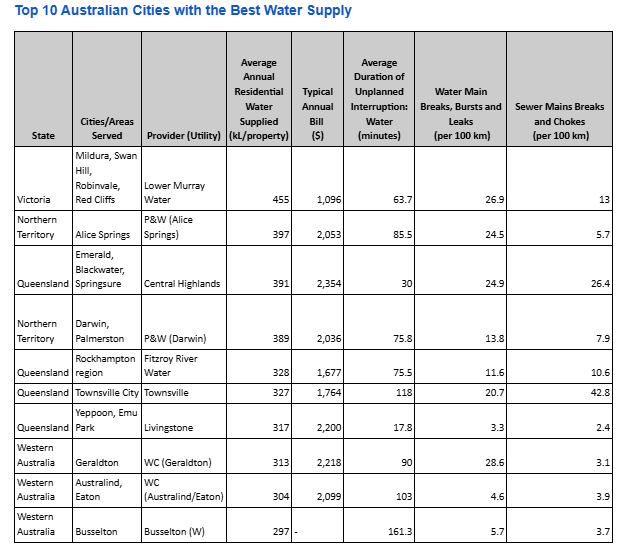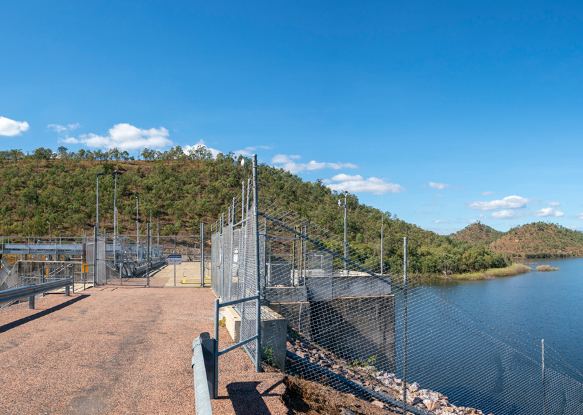What’s Happening?
A national assessment by All Kind Gas & Plumbing has identified Australia’s most and least reliable cities for household water supply. Using data from the Urban National Performance Report, the team evaluated 73 utilities across five key indicators—including supply volume, pricing, and infrastructure breakdowns.
Townsville City has earned its place in the top six for best-performing water systems, joining cities like Darwin, Alice Springs, and Mildura for delivering strong, affordable service and maintaining a reliable infrastructure network.
Why It Matters
Australians depend on safe, consistent access to water for hygiene, health, and daily life. Failing systems can lead to flooding, water shortages, and increased repair costs for homeowners.
“Unreliable plumbing disrupts daily life across Australia, leading to unexpected water damage, followed by high repair costs,” said Cameron Anderson from All Kind Gas & Plumbing. “In Brisbane, where aging infrastructure and extreme weather conditions like floods and heatwaves impact plumbing systems, residents face frequent leaks and pipe bursts.”
“For us,” he added, “these issues mean a constant demand for emergency-related work but also mean putting the team in rough conditions, long hours, and often under pressure to deliver quick solutions in often deteriorating or outdated systems.”
Local Impact
Townsville stands out for its efficient, value-driven water service. The city supplies more water per household than many capital cities and outpaces others in reliability, reducing the risk of disruption and costly repairs.
Its strong performance benefits the wider community, ensuring steady water for homes, businesses, and infrastructure projects. The city’s inclusion on the top-performers list boosts public confidence and highlights the value of strong public utilities.

By the Numbers
-
327 kL of water is supplied annually to Townsville households, more than double that of underperforming cities like Bass Coast (91 kL).
-
$1,764 is the average annual water bill, reflecting strong value for a high volume of consistent supply.
-
42.8 sewer main breaks per 100 km were reported, higher than top sewer performers like Mackay (1.1), but below the highest regional breakdowns (e.g., 133 in rural NSW).
Zoom In
The report highlights that Townsville’s strong performance comes from scale, direct access to water sources, and unified management. Unlike fragmented utilities in places like Melbourne or Logan, Townsville’s system allows streamlined service and faster issue response.
According to the report, “These government-owned utilities provide services at acceptable costs without the pressure of achieving big profits.” Townsville, like other top regional performers, benefits from this model. Its water utility delivers consistent volumes without passing on excessive costs to consumers.
Zoom Out
The national picture is uneven. Victoria is home to both the best (Mildura region) and worst (Phillip Island and Bass Coast) performers. Tasmania has the most infrastructure failures, while the Northern Territory stands out with the best overall state performance.
Cities with layered utility models: such as Logan, Toowoomba, and parts of Melbourne, face dual charges and service fragmentation, often leading to higher bills and lower service volumes. For example, Logan residents pay $1,642 for just 134 kL annually.
Coastal towns with desalination infrastructure, like Wonthaggi and Phillip Island, also pay higher rates due to fixed costs, regardless of usage. “These utilities are too small to achieve scale efficiencies, but too complex and costly in infrastructure for metropolitan levels,” the report states.
What to Look For Next?
As of 2025, Australia’s water supply industry includes 694 active utilities, with future comparisons likely to guide investment and reform.
Anderson recommends homeowners take a proactive approach to protect their own systems: “We often say to homeowners that in order to keep things flowing they ideally should do regular inspections, avoid chemical drain cleaners, and install pressure regulators. Identifying possible leaks and fixing them at an early stage can lower bills.”
He added: “Learning basic signs of pipe problems, like discoloured water or reduced pressure can save residents from overpaying for repairs. Preventative maintenance, such as flushing hot water systems and insulating exposed pipes, also goes a long way in avoiding costly repairs and ensuring customers’ plumbing flows all year round.”
Details from Georgy Nikolin



